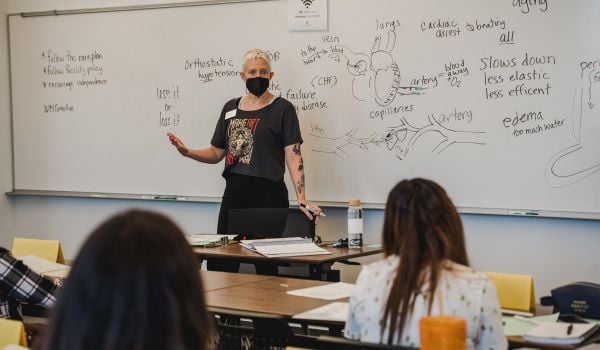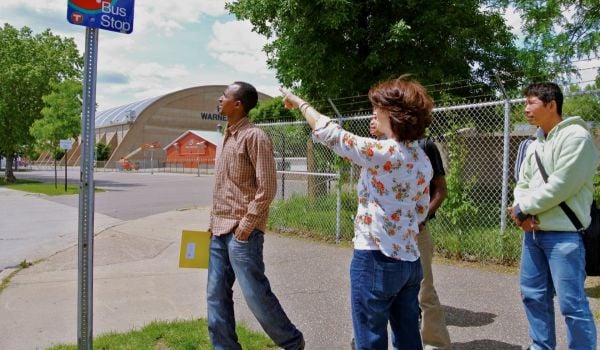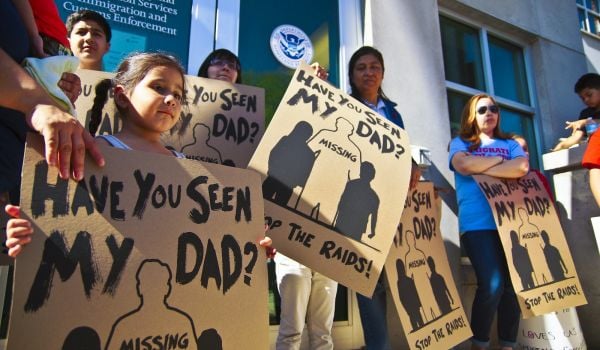Ge Vang’s family — including his father, who was recruited to fight for the U.S. at age 15 during the Vietnam War — immigrated to the United States when he was just eight months old. The Hmong refugees from Laos settled in St. Paul, where the majority of Minnesota’s estimated 60,000 Hmong residents live.
One day in the early ’90s when Vang was 18, he was driving a van through the city when an acquaintance in the passenger seat pulled out a gun and waved it at a nearby group of young people. Vang was convicted of a felony aiding and abetting charge and was sentenced to the 83 days he had already served in jail.
It seemed like the incident was behind him, but then a change to federal law made his old conviction relevant again. The Illegal Immigration Reform and Immigrant Responsibility Act of 1996, known as IIRIRA, introduced new deportation penalties for immigrants who commit crimes in the United States. Despite being a U.S. resident with a record that has been clean since he was convicted at 19, Vang — now a construction worker, father of four, and an active member in the Hmong community — was put on a federal deportation list. He spent the following 25 years living in limbo, worrying about being sent back to a country where he’s never lived.
Just last year an immigration judge finally terminated Vang’s lingering deportation order, after a lower court determined there was a flaw in his trial decades ago. This was thanks in large part to the help of the St. Paul-based Coalition of Asian American Leaders (CAAL), an advocacy organization focused on equity and social justice. CAAL informed Vang about the possibility of post-conviction relief — the ability of a defendant to challenge the outcome of their case after they’ve already been convicted — and connected him to attorneys.
They also supported him while he navigated the complexities of what Jenny Srey, a senior manager for civic power at CAAL, refers to as the “crimi-gation system,” the interconnected web of ties between the criminal justice and immigration systems. “The crimi-gation system is very hard to navigate and understand,” she says.
Making it even tougher for cases like Vang’s: timing. While all states offer some form of post-conviction relief, Minnesota’s comes with a two-year statute of limitations. “Minnesota is one of the strictest states in the U.S. because of the two-year time limitation. Some states, like Wisconsin, don’t have a time limit at all,” explains Srey.
There are currently five exceptions to the two-year time limit. CAAL, with support from almost 30 community groups as well as local city and county governments, hopes to add a sixth: for immigrants who didn’t understand the consequences of their convictions.
There is federal precedent for this. As Veena Iyer — the executive director of the Immigrant Law Center of Minnesota, a supporting partner of CAAL’s bill — explains, the 2010 Padilla vs. Kentucky U.S. Supreme Court decision determined that it’s a constitutional violation for defense attorneys to not advise their clients of the deportation consequences of a guilty plea, even potential ones. The ruling opened up a path for immigrants around the U.S. to challenge IIRIRA, which was used to deport 672,593 immigrants in the decade after its passage.
CAAL estimates that Vang is just one of 16,000 Southeast Asian refugees in the U.S. whose deportation statuses have been impacted by the 1996 law.
For Srey, the “sixth exception” bill is common-sense justice. “Most people don’t know that a conviction could lead them to deportation. It’s a violation of their constitutional rights to not know what a conviction could lead to,” she says.
The Minnesota bill was first introduced in 2019, but after stalling out because of state budget negotiations that year, it was reintroduced in 2021. “We’ve been able to have a hearing in the [Democrat-controlled] House for the last four sessions, so we’re hoping for that again,” Srey says. Despite still being unable to get a hearing in the Republican-controlled Senate, the bill has enjoyed bipartisan support from Vietnam veterans who, Srey says, intimately understand the historical context of how dangerous it can be to send people back to the country they fled.
So far, the bill has cleared all of the necessary committees in the House and the chair of the judiciary committee is supportive. “On the Senate side, it would be great if we could get a hearing. That would be the most helpful next step,” ThaoMee Xiong, CAAL executive and network director, says. “One of the things we need to do is build more relationships with Senate Republicans. But this is an election year, so every decision they make will be with an eye toward how it will impact the election.”
However, even if the bill does pass, there’s still a lot of work ahead of immigrants looking for post-conviction relief.
“In some of the cases we’ve worked on, people were explicitly told by prosecutors and public defenders that, because they’re Southeast Asian refugees or because they’re from a certain country, that they didn’t have to worry about deportation,” Xiong explains. “Sometimes that’s actually documented by the court recorder and we can look back at the documents. But when it’s not that explicit and there’s no paper trail, we have to rely on historic context” like U.S. officials saying the country wouldn’t enter into repatriation agreements that they eventually did.
Even with the potential sixth exception, getting post-conviction relief “isn’t a simple or easy process. They still have to navigate both the criminal justice and immigration systems,” Xiong cautions. “But it would give them a glimmer of hope that their deportation order could be removed and that they could live without the threat of deportation that, right now, leaves people sitting in fear never knowing if today is the day.”

Cinnamon Janzer is a freelance journalist based in Minneapolis. Her work has appeared in National Geographic, U.S. News & World Report, Rewire.news, and more. She holds an MA in Social Design, with a specialization in intervention design, from the Maryland Institute College of Art and a BA in Cultural Anthropology and Fine Art from the University of Minnesota, Twin Cities.
Follow Cinnamon .(JavaScript must be enabled to view this email address)
















